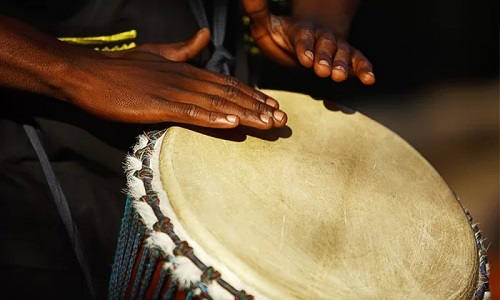The Ga Traditional Council has announced that this year’s ban on drumming and noise-making will take effect from Monday, May 12, to Thursday, June 12, as part of the traditional preparations for the Homowo Festival.
The annual ban, a significant cultural practice among the Ga people, is observed to create an atmosphere of peace, solemnity, and spiritual reflection ahead of the festival, which celebrates unity, resilience, and gratitude for a bountiful harvest.
The Council clarified that while the ban will be enforced across many Ga communities, areas such as Osu, La, Teshie, Nungua, Tema, Kpone, Prampram, and Ningo will announce their specific dates for implementation after June 12. Residents in these areas are urged to stay updated and adhere to the respective announcements.
Speaking on behalf of the Ga Traditional Council, Sylvester Parker Allotey described the ban as a sacred tradition that allows the Ga people to prepare spiritually for the festival. “This ban is a sacred tradition that allows us to prepare spiritually and reflect on our heritage as we approach the Homowo Festival. It’s a time for peace, unity, and quiet reflection before the celebratory festivities begin,” he said.
The Homowo Festival is a momentous occasion for the Ga people, commemorating their triumph over famine and expressing gratitude for an abundant harvest. The period of silence leading up to the festival serves as a time of reflection before the joyous celebrations commence.
The Ga Traditional Council reminded the public that the ban is legally recognised under the 1992 Constitution of Ghana, which upholds the practice of customary law and cultural traditions. Article 11(3) of the Constitution acknowledges customary law as an integral part of the country’s legal framework, while Article 26(1) guarantees communities the right to preserve their cultural heritage.
The Council also expressed appreciation to the public for their cooperation in observing previous bans, stressing that adherence is vital for maintaining the sanctity of the Homowo Festival, which carries deep cultural significance for the Ga people.
During the ban, specific restrictions will be enforced, including the requirement for worship centres to limit their activities to their premises. Noise-making, including clapping, the use of tambourines, and other musical instruments, will be strictly prohibited. Additionally, the use of loudspeakers outside church premises, mosques, or for roadside evangelism will not be allowed. Funeral rites and related activities will also be suspended until one week after the ban is lifted, with funerals permitted to resume on Friday, June 20, 2025.
To ensure compliance, a task force comprising representatives from the Regional Security Council (REGSEC), local assemblies, and the Ghana Police Service will be monitoring adherence to the directive. Those found violating the ban will face legal consequences.
“We encourage all residents, visitors, and institutions to respect this cultural practice,” the spokesperson added. “It helps maintain social harmony and mutual respect, allowing us to preserve the peace within our diverse community.”

